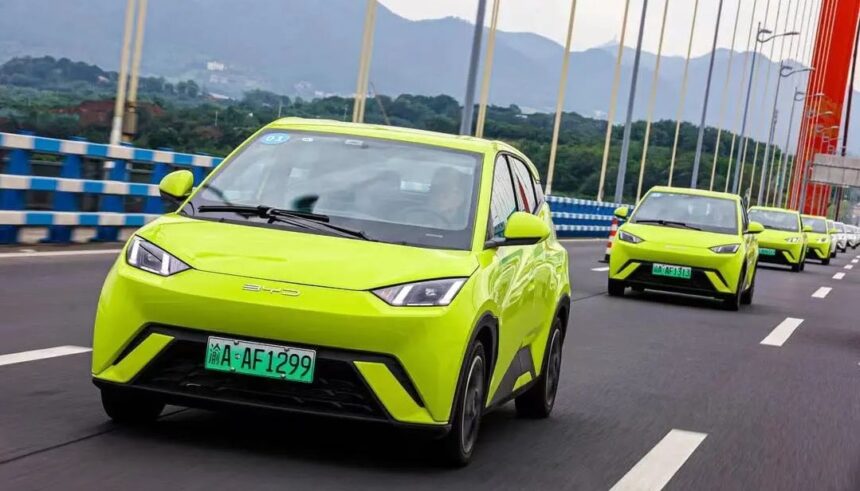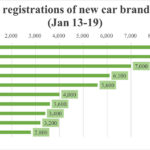BYD to Offer Smart Driving Features Across Entire Lineup by 2025
BYD, the leading Chinese electric vehicle manufacturer, is set to revolutionize the automotive industry by introducing Navigate on Autopilot (NOA) smart driving technology across its entire lineup by 2025. This move aims to make advanced driving features accessible to a wider audience, including budget-friendly models like the BYD Seagull priced at just 68,900 yuan (9,500 USD).
While BYD dominates the EV market in China, the company has been criticized for lagging behind in software, advanced driver-assistance systems (ADAS), and smart driving capabilities. However, this is set to change in 2025 as BYD has significantly invested in software development over the past two years.
Collaborating with various ADAS providers such as DJI and Huawei, BYD previously offered advanced ADAS only in select EV models. However, in 2025, the company plans to deploy its in-house developed ADAS algorithms across the entire lineup, ranging from budget-friendly vehicles to high-end luxury models like the Yangwang U8.
The shift towards software development began in September 2023 when BYD established a dedicated ADAS smart driving team, which now comprises 1,300 experts. In January 2024, the company announced a substantial investment of 100 billion yuan (13.6 billion USD) into ADAS development.
BYD’s ADAS team is currently focused on developing urban smart driving (City Navigate on Autopilot) and highway smart driving (Highway Navigate on Autopilot) features. The company’s swift progress has surprised industry insiders, with expectations for the rollout of ADAS in the first half of 2025.
BYD’s ADAS offerings are divided into three categories:
- DiPilot 100: Entry-level ADAS with basic NOA function
- DiPilot 300: Mid-tier ADAS with semi-autonomous highway driving
- DiPilot 600: High-end ADAS with both highway and urban driving capabilities
By the end of 2025, BYD aims to equip all its vehicles with some level of smart driving features. The company plans to launch an advanced ADAS version of the BYD Seagull and other EV models, making smart driving technology more accessible to a broader market.
In a bid to stay competitive, BYD is not only focusing on price but also on offering superior ADAS specifications. The company is known for installing advanced camera systems even on entry-level EVs, demonstrating its commitment to safety and innovation.
With a target of selling 5.5 million vehicles in 2025, BYD has secured chip supplies from Nvidia and Horizon Robotics to support its ambitious ADAS rollout. The company’s commitment to democratizing smart driving technology is poised to set new standards in the automotive industry.







